A study of the invisible forces that lead people to make wrong decisions in life and business, according to one of the best-selling authors of books on psychology and behavioral economics in the US
Central Ideas:
1 – Whether we are acting as consumers, traders, or policy providers, understanding how predictably irrational we provide a starting point for improving our decision-making and changing the way we live.
2 – The concept of zero, for free also applies to time. If we spend 45 minutes in line for free ice cream or spend half an hour filling out forms for a lousy discount, we are failing to do something with our time.
3 – We have problems with control, of procrastination. But we also have self-control mechanisms. If we can’t save from our paycheck for retirement, we can use the automatic deduction option by our employer. If we don’t like to work out alone, we can work out in the company of friends.
4 – Why are we often dishonest? We worry about honesty when facing big transgressions, like stealing an entire box of pens at a conference. Small transgressions, like stealing one or two pens, are not taken into consideration.
5 – Once we understand when and where we can be wrong in our decisions, we can try to be more vigilant, more punctual, or use technology to overcome inherent deficiencies. These are the so-called free lunches that magnify life.
About the Author:
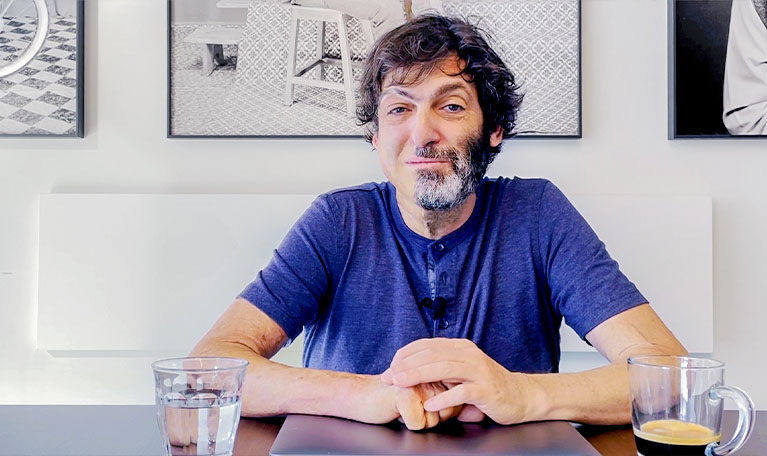
Dan Ariely is a professor of psychology and behavioral economics at Duke University. Author of numerous books and scientific articles, he is one of the founding members of the Center for Advanced Hindsight. He also released The Psychology of Money.
The journey through the various ways we can be irrational is the theme of this book. The discipline that allows me to deal with this subject is called behavioral economics (or judgment and decision making).
Behavioral economics is a relatively new field that draws on aspects of both psychology and economics. It has made me study everything from our reluctance to save for retirement to our inability to think clearly during sexual arousal. It was not only the behavior that I tried to understand, but also the decision-making processes behind such behavior – yours, mine, and everyone else’s. Before I go any further, I will try to briefly explain what behavioral economics consists of and how it differs from traditional economics.
To the extent that we believe in human rationality, we are all economists. I am not saying that each of us can intuitively develop complex game theory models or understand the generalized axiom of revealed preference. Rather, I mean that we hold basic beliefs about the nature on which economics is based. In this book, when I mention the rational economics model, I am referring to the basic assumption that most economists and many of us hold about human nature: the simple and irresistible idea that we are capable of making the right decisions.
While it is justifiable to admire what human beings are capable of, there is a big difference between this feeling and the claim that our reasoning abilities are perfect. In fact, this book is about human irrationality, about how far we are from perfection. Recognizing where we fall short of the ideal is important for understanding ourselves, and this promises much practical business. Understanding irrationality is fundamental to our day-to-day actions and decisions, and to understand how we design our environment and the options that present themselves.
My additional observation is that not only are we irrational, we are predictably irrational – our irrationality occurs the same way over and over again. Whether we are acting as consumers, traders, or policy providers, understanding how predictably irrational we provide a starting point for improving our decision-making and changing the way we live.
The truth about relativity. Relativity helps us make decisions in life, but it can also bring us down. Why? Because jealousy and envy spring from comparing what has fallen to us in life with what has fallen to others.
It was for a good reason, after all, that one of the Ten Commandments warned, “You shall not covet your neighbor’s house. You shall not covet your neighbor’s wife or his manservant or his maidservant or his ox or his ass or anything that belongs to your neighbor.” This must be the most difficult commandment to follow, considering that by our very nature we are programmed to compare.
In another news item, a doctor explained that he graduated from Harvard with the dream of one day receiving a Nobel Prize for cancer research. That was his goal. That was his dream. However, a few years later, he realized that several of his colleagues were earning more as medical investment advisors to Wall Street firms than they were in medicine. He had previously been satisfied with his income, but when he heard about his friends’ yachts and country houses, he suddenly felt very poor. So he took another direction in his career: the direction of Wall Street. Twenty years after graduation, he was earning ten times what most of his colleagues earned in medicine. He did not win the Nobel Prize, but he had given up his dreams for a higher salary. Is it any wonder that family doctors, who earn an average of $160,000 annually, are in short supply in the United States?
Can we do anything about this problem of relativity? The good news is that we can sometimes control the “circles” around us by moving closer to smaller circles that promote relative happiness. If we are at the college class reunion and there is a “big circle” in the middle of the room boasting about high salaries, we can consciously step back a bit and talk to other people. If we are thinking of buying a new house, we can be selective about the houses we visit, avoiding those that are beyond our means. If we are considering buying a new car, we can focus on the models within our reach, and so on.
Zero price effect. In the land of prices, zero is not just another price. Sure, 10 cents can make a huge difference in demand (suppose you are selling millions of barrels of oil), but nothing beats the emotional surge of FREE. The zero price effect is a category of its own.
No doubt, “buying something for nothing” is somewhat paradoxical. But I will give an example of how we often fall into the trap of buying something we don’t want just because of this sticky substance: FREE!
In 2007, I saw an ad in a newspaper for a major electronics manufacturer offering seven FREE DVDs if I bought their new high-definition DVD player. First of all, did I need it? Presumably not. Even if I did, wouldn’t it be wiser to wait for the price to drop? It always does – and the high-definition DVD set that costs $600 today will soon cost $200. Second, the manufacturer had a clear intention behind its offer. Its high-definition DVD system was in fierce competition with Blu-Ray, a system backed by many other manufacturers. Blu-Ray was ahead at the time and has since come to dominate the market. How much is FREE worth when the machine offered will soon be obsolete (like Betamax VCRs)? These are two rational thoughts that could keep us from falling under the spell of FREE. But, gee, those DVDs look good!
The concept of zero also applies to time. The time spent on one activity, after all, is the time taken away from another. So whether we spend 45 minutes in a line until it’s our turn to get free ice cream or we spend half an hour filling out a long form for a tiny discount, there is something else we are missing out on with our time.
My personal favorite example is the free admission day at a museum. Despite the fact that most museums are not expensive, I find it more appealing to satisfy my desire for art when the price is zero. Of course, I am not alone. These days I usually find that the museum is overcrowded, the line is long, it is hard to see anything, and facing crowds is unpleasant. Is it a mistake to go to the museum on the day of free admission? Of course, it is – but I go anyway.
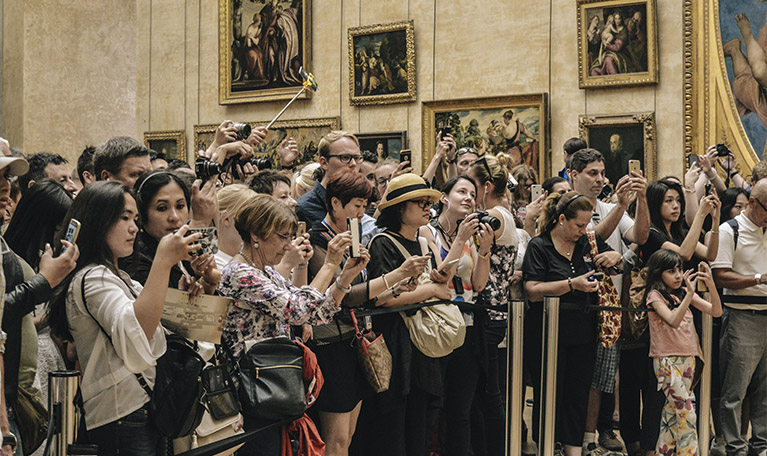
Social norms vs. the market. The basic lesson is that when we offer people a financial payment in a situation governed by social norms, the offer could reduce their motivation to get involved and help.
But if the situation were reversed and we asked people to pay us for something? Would the effect of social norms work the same way? This was the question that Uri Gneezy (professor at the University of California at San Diego), Ernan Haruvy (professor at the University of Texas at Dallas), and I wanted to explore: the effect of mixing social and market norms to demand?
To think more concretely about this effect, imagine that one of your co-workers – let’s call her Susan – is a talented baker. One weekend, in a fit of boredom, Susan bakes 100 oatmeal chocolate chip cookies using her grandmother’s famous recipe, and there are about 100 people in the office. Since your desk is next to hers, Susan walks over to your desk first and places in front of you the box of all those smelly treats.
How many would you take, and how would you decide that? Chances are good that you would consider, among other factors, your hunger level, your diet, and your passion for chocolate chip cookies and oatmeal. You might also think about how your colleagues would feel if they ran out of cookies and if they knew you took a bunch of them. With all this in mind, including the importance of social norms, you decide to take one or two.
Now let’s look at a variation of this situation. This time Susan walks by your table asking if you want to buy cookies for 50 cents each. How many would you take, and what would determine your decision? Again, you would probably take into account your level of hunger, your diet, and your passion for oatmeal chocolate chip cookies. But unlike the previous case, this time you would have no qualms about buying a bunch to eat and take home (knowing how much your children love them), nor would you even think about the fact that by keeping so many cookies you would be depriving your colleagues of the same joy.
Throughout our daily lives, we are often asked to invest effort in recycling, spend time watching the neighborhood, help out at our children’s school, work voluntarily distributing soup to the poor, and much more. In each of these cases, we could argue that participating in these activities makes little economic sense. Why not pay someone to recycle for us, watch over our neighborhood, help out at our children’s school, or distribute food to the poor? Sure, investing effort instead of money may be economically inefficient, but it could contribute to keeping us in the grip of social norms, and therefore to our taking into account the welfare of others.
Procrastination and self-control. In the American landscape, populated by mansions, big cars, and big-screen TVs, another phenomenon is emerging: the biggest decline in the personal savings rate since the Great Depression.
Wouldn’t it be wiser if Americans learned to save, as in the old days and as the rest of the world does, by diverting some money into their piggy banks and postponing some purchases until they can afford them? Why can’t they save part of their paychecks, even though they know they should? Why can’t they resist new purchases? Why don’t they exercise some control like they used to?
How much do we lose when our fleeting impulses distract us from long-term goals? How much is our health affected by the appointments we miss and the lack of physical exercise? How much is our wealth reduced when we forget our promise to save more and consume less? Why do we so often lose the battle against procrastination?
As a university professor, I am very familiar with procrastination. At the beginning of each semester, my students make heroic promises to themselves – they vow to do their readings on time, submit their dissertations on time, and generally keep up with their subjects. And every semester I watch as temptation causes them to go out for dates, to the student council meeting, or a ski trip to the mountains – while the workload is left behind. In the end, they impress me, not with their adherence to the deadline, but with their creativity: they invent stories, excuses, and family tragedies to explain their tardiness. (Why do family tragedies usually occur in the last two weeks of the semester?)
What is the conclusion? We have problems with self-control, related to immediate and delayed gratification – so far, no doubt. But each of the problems we face has potential self-control mechanisms as well. If we can’t save from our paycheck, we can take advantage of the automatic deduction option by our employer. If we don’t feel like working out regularly on our own, we can arrange to work out with our friends. These are tools we can commit to beforehand, and they can help us to be the kind of people we want to be.

Keeping the doors open. In the context of today’s world, we are committed to keeping all our alternatives open. We buy the expandable computer system, just in case we need all those high-tech enhancements. We buy the insurance policies that come with the high-definition TV, just in case the big screen runs out of pictures. And we buy an off-road luxury SUV not because we really intend to hit a dirt road, but because, should we do, we want to have a tough car.
We are not always aware of this, but in each case, we give something up in exchange for these options. We end up with a computer with more functions than we need, or a stereo with an unnecessarily expensive warranty. As we run back and forth between things that might be important, we forget to spend time on what really matters. It’s a mindless game that we are very good at.
We have an irrational compulsion to keep the doors open. This is how we are programmed. Which doesn’t mean we shouldn’t close them. Think of a fictional episode: Rhett Butler leaving Scarlett O’Hara in …Gone with the Wind, in the scene where Scarlett clings to him and pleads, “Where will I go? What shall I do?” Rhett, already fed up with Scarlett, says, “Frankly, darling, I don’t give a damn.” It is no accident that this has been voted the most memorable line in movie history. It is the emphatic closing of a door that makes it most compelling. And it should be a reminder to all of us that there are doors – small and large – that we should close.
Here’s another example. One of my friends took three months to choose a camera between two almost identical models. When he finally made his decision, I asked him how many photo opportunities he had missed, how much valuable time he had spent making the choice, and how much he would have paid to have photos of his family and friends documenting the past three months. More than the price of the camera, he said. Has anything like this ever happened to you?
Power of the price. More importantly, I want to probe an aspect of placebos that are not yet understood; the role that price plays in this phenomenon. Does an expensive medicine make us feel better than when we take a cheap medicine? Can it actually make us physiologically better than a cheaper brand? What about high-cost procedures and new-generation devices, such as digital pacemakers and high-tech stents? Does price influence their effectiveness? If so, does this mean that the health care bill in the United States will continue to skyrocket?
In general, two mechanisms shape the expectations that make placebos work. One is belief – our trust or faith in the medicine, the procedure, or the health care provider. Sometimes all it takes is for the doctor or nurse to give us attention and reassurance for us to not only feel better but for our internal healing processes to trigger. Even a doctor’s enthusiasm for a specific treatment or procedure can predispose us to a positive outcome.
The second mechanism is conditioning. Similar to Pavlov’s famous dogs (which learned to salivate when they heard the sound of a bell), the body develops expectancy after repeated experiences and releases chemicals that prepare us for the future. Suppose you have ordered pizza one night after another. When the delivery man rings the bell, your digestive juices start flowing before you even smell the pizza.
In reality, doctors provide placebos all the time. For example, a 2009 study found that more than a third of patients given antibiotics for sore throats were actually with viral infections, for which an antibiotic has no effect (and possibly contributes to increasing the number of drug-resistant bacterial infections that threaten us all). But do you think doctors will stop prescribing antibiotics for viral colds? Even though we understand that a cold is viral, not bacterial (and many colds are viral), doctors know very well that the patient wants some kind of relief. Usually, they expect to leave the doctor’s office with a prescription in hand. Is it right for the doctor to satisfy this psychic need?
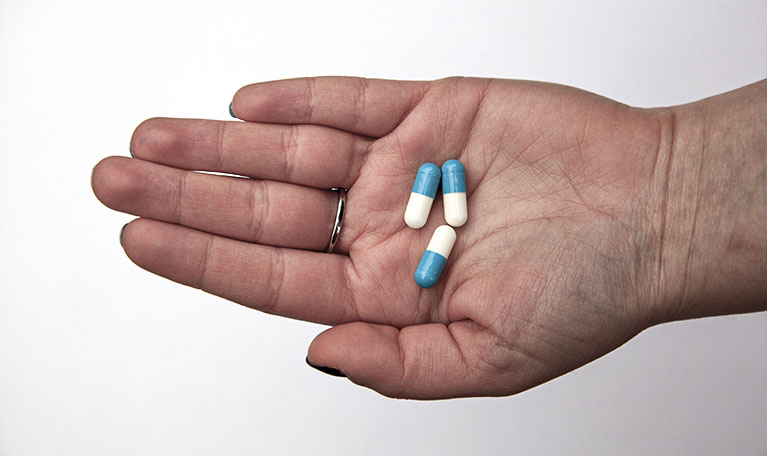
Context of our character. When the Enron scandal broke in 2001 (and it became clear that the company, named “America’s most innovative company” by Fortune magazine for six consecutive years, owed much of its success to accounting fraud), Nina Mazar, On Amir (a professor at the University of California at San Diego) and I found ourselves discussing the topic of dishonesty over lunch. We wanted to know why some crimes, particularly white-collar crimes, are prosecuted less rigorously than others – in particular why their perpetrators manage to inflict more financial damage between their breakfast and lunch than a common burglar in his entire life?
After some discussion, we concluded that there could be two kinds of dishonesty. One of them is the one that evokes the image of a couple of crooks hanging around a gas station. They observe how much money can be going into the cash register, if someone might be watching, in short, they calculate the cost-benefit. Then they decide to rob the place. Then the second type of dishonesty is committed by people who generally consider themselves to be honest: men and women who steal a pen at a conference, exaggerate the value of the TV on a loss report, etc.
But if honesty is important (in a survey of about 36,000 high school students in the United States, 98% of them said it was important, to be honest, and it makes us feel good, why are we dishonest so often?
This is our interpretation. We care about honesty and we want to be honest. The problem is that our internal honesty monitor is only active when we contemplate big transgressions, like stealing an entire box of pens from a conference room. For the smaller transgressions, like taking just one or two pens, we don’t even consider the effect of these actions on our honesty, so our superego goes dormant.
Right now, several state bar associations and professional organizations are struggling to strengthen their professional ethics. Some are increasing the curriculum of courses in college and graduate school, others are requiring refresher courses in ethics.
Will these general measures work? Let’s remember that lawyers take an oath when they are admitted to the bar, just as doctors take an oath when they enter the profession. But oaths and declarations of obedience to the occasional rule are not enough. When social norms collide with market norms, the social ones disappear and the market ones remain. Although the analogy is not exact, honesty offers a related lesson: once professional ethics (the social norms) have declined, getting them back will not be easy.
Free lunch. Behavioral economists believe that people are susceptible to irrelevant influences from their immediate environment (which we call context effects), irrelevant emotions, and other forms of irrationality. What good news can accompany such a perception? The good news is that these mistakes also provide opportunities for development. If we make systematic mistakes in our decisions, why not develop new strategies, tools, and methods to help us make better decisions and improve our overall well-being? This is the meaning of “free lunch” from the behavioral economics perspective: the idea that there are tools, methods, and policies that can help us achieve what we want.
When the “Save More Tomorrow” plan was implemented in Thaler and Benartzi’s test, the employees joined and agreed to increase their contribution percentage with their future salary increases. What was the result? In the following years, when employees received raises, savings rates rose from about 3.5% to 13.5% – a gain for the employees, their families, and the company, which now has more satisfied and less worried employees.
This is the basic idea of the free lunch: to benefit all parties involved. Note that this free lunch does not have to be without cost (implementing the self-monitoring credit card or “Save More Tomorrow” inevitably involves a cost). To the extent that these mechanisms provide more benefits than costs, we should consider them free lunches – mechanisms that provide net benefits to all involved.
While irrationality is commonplace, this does not necessarily mean that we are helpless. Once we understand when and where we might be wrong in our decisions, we can try to be more vigilant, force ourselves to think differently or use technology to overcome our inherent shortcomings. Companies and policymakers could review their thinking and evaluate how to design policies and products in order to provide free lunches.
Review: Rogério H. Jönck
Photos: reproduction; NeONBRAND, Alicia Steels and Mark Fletcher-Brown / Unsplash; fizkes / iStock
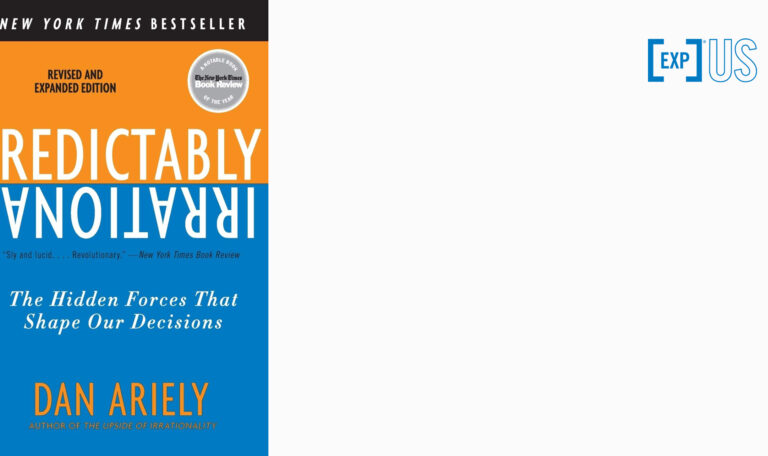
FACTSHEET:
Original Title: Predictably irrational
Author: Dan Ariely
![[Experience Club] US [Experience Club] US](https://experienceclubus.com/wp-content/uploads/2021/03/laksdh.png)










![[Experience Club] US [Experience Club] US](https://experienceclubus.com/wp-content/uploads/2021/03/logos_EXP_US-3.png)


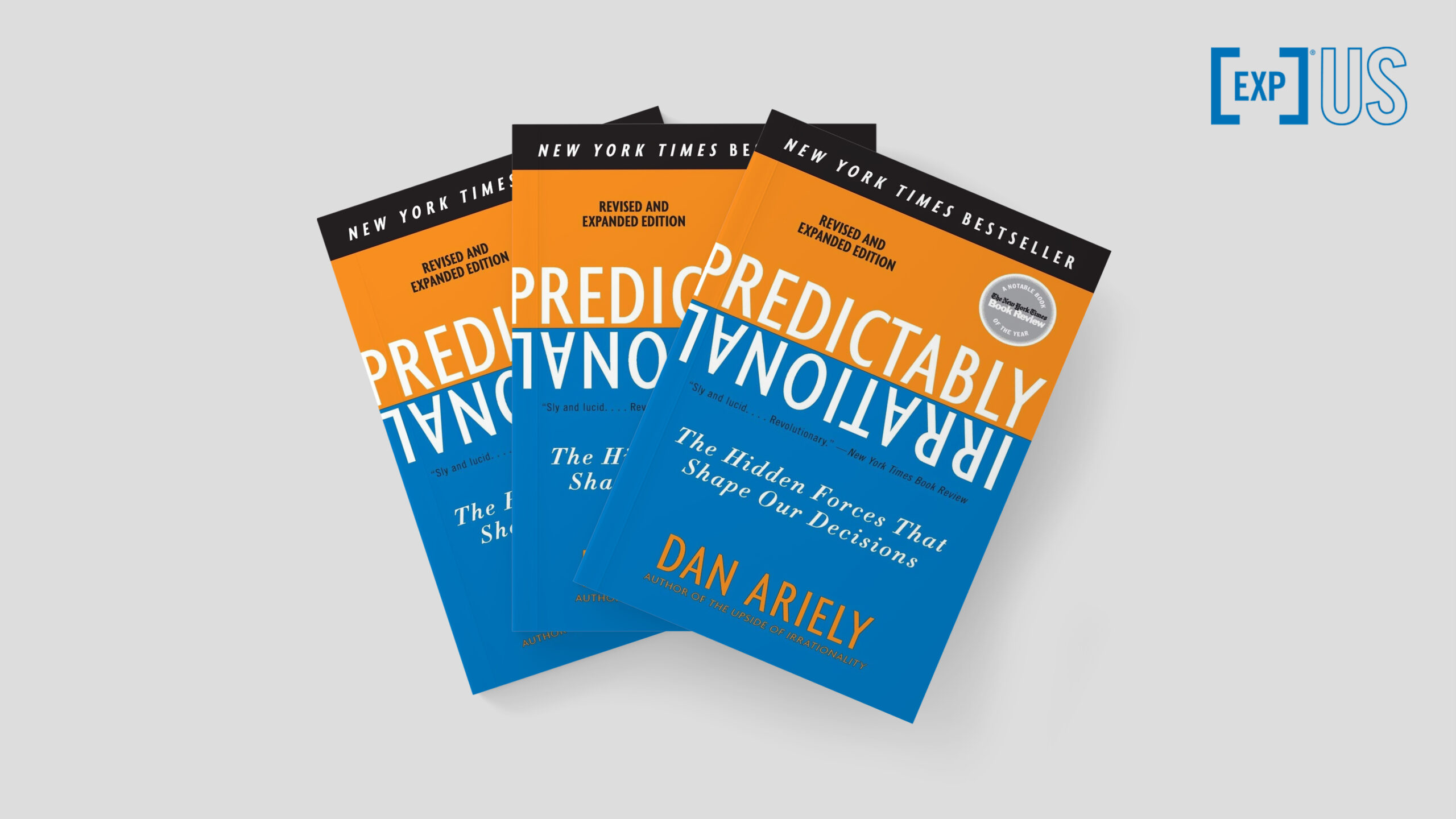

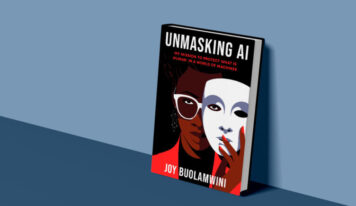
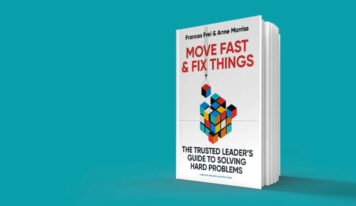
![[EXP no SXSW 2024] Rohit Bhargava: como o pensamento não-óbvio pode melhorar o mundo](https://experienceclubus.com/wp-content/uploads/2024/03/rohit-356x206.jpg)
